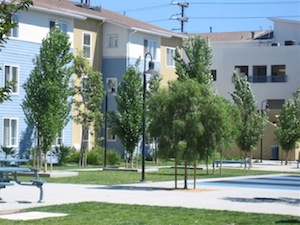Provo council approves FTTH system sale to Google

Provo’s newest resident.
In a series of unanimous votes, the Provo municipal council voted tonight to approve the sale of the city’s fiber-to-the-home network to Google. The benefits to Provo and its citizens – free (more or less) Internet service for at least seven years, connections for city and school facilities and millions of dollars invested in finishing the build out of the system – were praised by the council and members of the public.… More









